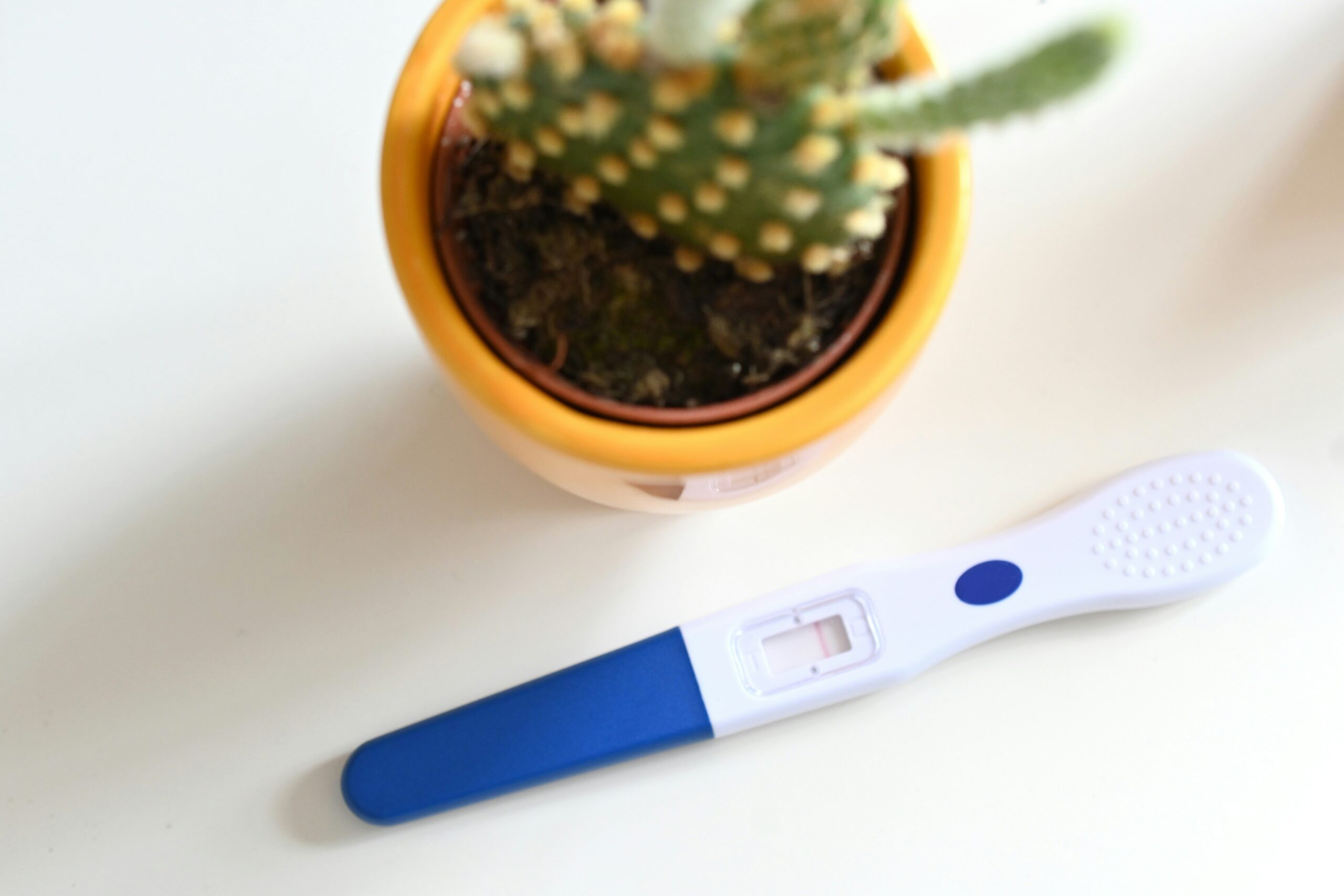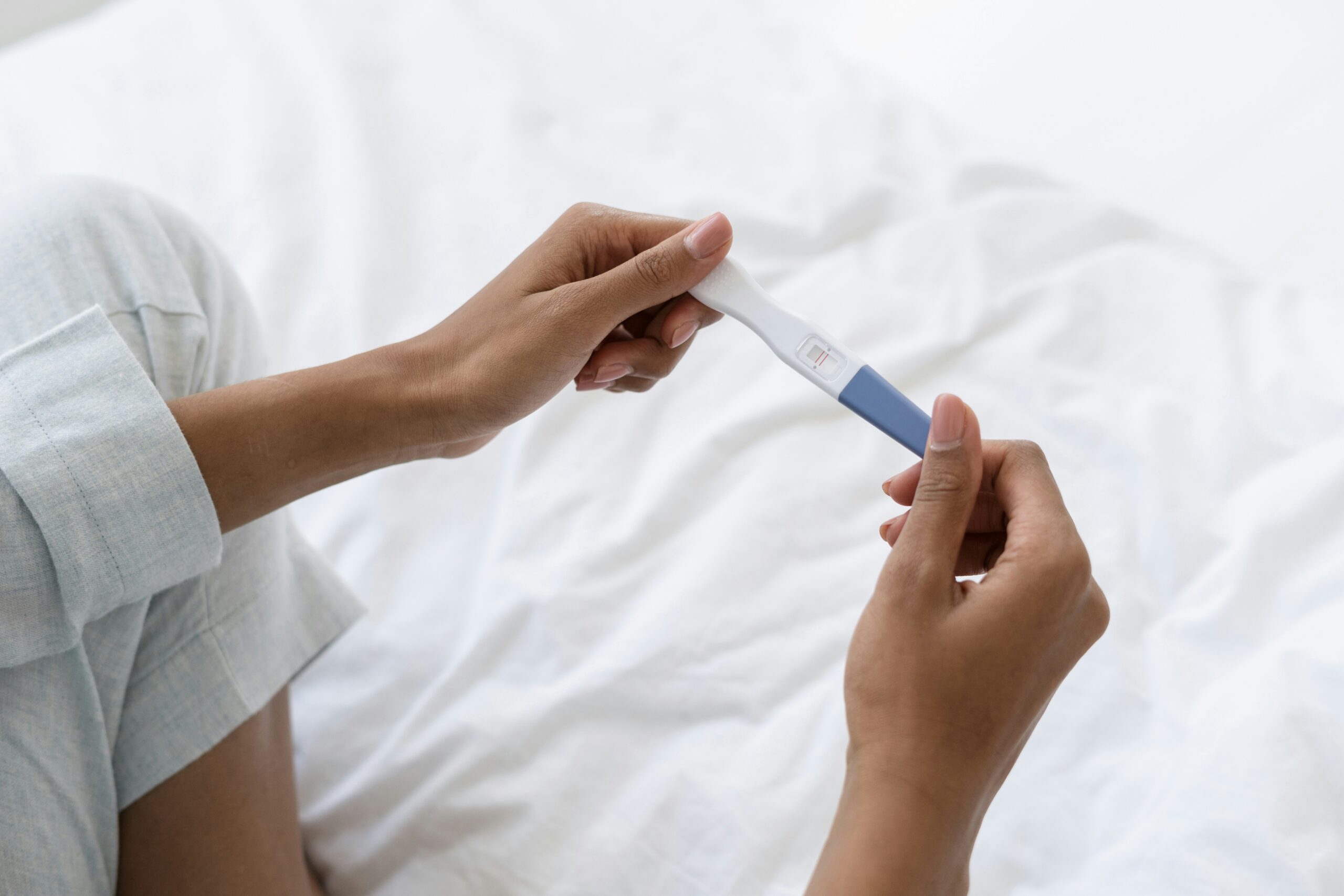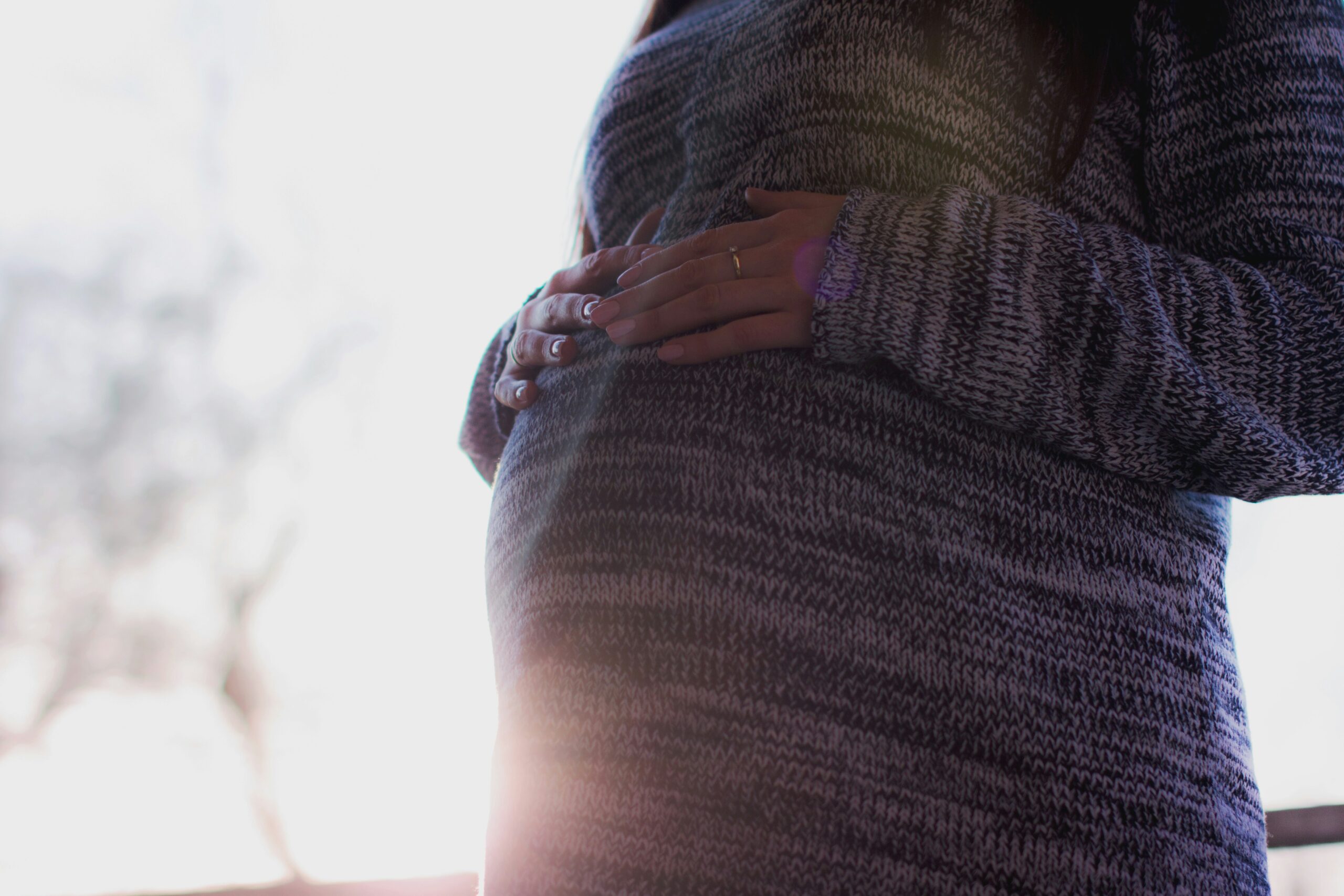On January 26, 2022, I saw the faintest positive pregnancy test. Based on my calculations, I was three weeks and four days pregnant. My husband and I had just started trying to conceive and, while I didn’t expect to see a positive test so soon, we were thrilled. I found an OB/GYN and scheduled an appointment for an ultrasound at eight weeks.
Just 10 days after that positive test, I started bleeding and cramping. I spent an hour Googling what that meant. Was I miscarrying? Could it be a subchorionic hemorrhage? Maybe it’s implantation bleeding? Is there a chance my baby is okay? The answers were both helpful and horrifying.
I called my OB/GYN, whom I had never met or spoken to previously, and tearfully explained what was happening. He calmly encouraged me to go to the emergency room for a check.
At that time in the greater Los Angeles area, COVID-19 precautions were still quite intense. This meant I had to endure this experience in the emergency room—alone. I checked in, hugged my husband goodbye and spent the next four hours surrounded by strangers, other patients and medical staff.I texted my husband updates to reassure him that I was okay, that we would be okay, but I wasn’t okay.
A nurse drew my blood and sent me to have a transvaginal ultrasound. Just as it sounds, a transvaginal ultrasound is uncomfortable enough in its own right—and far worse when you’re bleeding and losing the baby you dreamed of. To make matters worse, the ultrasound technician was quite possibly the least comforting person I have ever encountered in my life. Hours later the ER doctor told me my bloodwork came back and my HCG was 46.
While I knew 46 was low I didn’t know just how low it was. It would go up, right? The doctor handed me some papers explaining my diagnosis, a “possible miscarriage,” and told me to stay on bed rest for the next week to help slow the bleeding. She explained that the ultrasound revealed no pregnancy, but that I was still “so early there’s nothing to see yet”. I could still be pregnant.
That was it. That was the extent of the medical advice I was given.
My husband picked me up from the hospital and we cried. Later that week I had more bloodwork done to check my HCG levels. While I hoped they had risen I knew they hadn’t.
At the time I worked two part-time jobs.. One was remote and the other was in person as a nanny. I texted my nanny family to tell them I needed the week off to try and save my baby. Thankfully they were incredibly accommodating and supportive.
I never told my other boss what was happening and worked the entire week. That decision is one of my biggest regrets. I wish I had taken time off. I didn’t want to take my mind off of it and focus on work. I wanted to focus on my baby. (Many months later I did tell my boss, and he was not only heartbroken for my husband and me, but pained at the fact that I worked during it.)
I spent that week glued to the couch, obeying my bed-rest orders hoping to save the pregnancy I knew was already gone. I watched hours of television while working, but couldn’t muster the courage to watch anything new for fear there would be a storyline about pregnancy loss that would send me spiraling.
I skipped episodes with references to pregnancies and babies. Those gave me false hope, like pregnancy leads to a baby. I had first-hand experience that it didn’t.
My husband and I talked a lot. We were both grieving, but we were grieving in opposite ways. It’s an odd feeling to know someone is experiencing the same emotions as you, but that they feel them so differently. It was sometimes easier not to talk at all because I didn’t want to make him sad (he already was) or make myself more upset. We didn’t want to tell the other how to feel but also didn’t want to keep our feelings to ourselves. We both lost a baby, but my body was the one actively losing it. Sometimes we just cried.
Journaling helped. I was never someone to write before, but I had started a pregnancy journal and it felt like a waste of a beautiful notebook to leave just three pages filled. It’s something I have continued whenever I can find the time. Though I much prefer pen and paper, sometimes I only have the time to write a short note on my phone. But getting my thoughts out, no matter what format, has been freeing.
Based on absolutely nothing I felt like there was a grieving timeline I was forced to follow. Because I was only five weeks along when I miscarried, I felt undeserving of the time my body and mind truly needed to heal. I was always preemptively qualifying my loss as an “early miscarriage” to keep someone from telling me that it wasn’t a miscarriage, but a chemical pregnancy. Whether or not my loss was chemical did not change my heartbreak.
As I opened up to my family and close friends in the weeks that followed I realized I was rushing myself to heal because I felt like I had to. In expecting people to say “But you were so early” I tried to convince myself that I was less worthy of love and recovery. I wasn’t. I now know that I needed the emotional recovery time just as much as the physical. So much of me changed from miscarrying.
Before my miscarriage I was an avid reader, knocking out at least one book a week, sometimes two. After my miscarriage, my reading slowed. For reference, I read 63 books in 2021. In the five weeks of 2022 before my miscarriage, I read ten books. In the remaining 47 weeks of the year, I read only eight books. I still haven’t regained the same literary love that I had before and I miss it. My bookshelves continue to fill and my wish lists get longer, but I barely make a dent.
In the weeks following my miscarriage, I recreated the cover of When No One is Watching by Alyssa Cole, the book I was reading as I sat in the ER, using a poster display board and an inordinate amount of art supplies. The final masterpiece featured my dog posing in the scene. My husband was worried about me. I was pouring myself into this seemingly pointless activity and spending money on art supplies I was never going to use again. Yes, all of this, to recreate a random book cover.
My therapist reassured me that I was doing exactly what I needed to keep myself going, even if my husband didn’t understand. What might have seemed like a mental breakdown to some was what was fueling me to keep going. I found a creative outlet I didn’t have before and it allowed me, briefly, to escape the hell that I felt like I was living. (And by the way, my husband loved the finished product.)
My doctor told me we could resume trying to conceive after one normal menstrual cycle, but as badly as I wanted to be pregnant and have a living child, I was afraid of experiencing loss again. Or worse, I was afraid we wouldn’t conceive again.
There’s that theory that people cut their hair during troublesome times in life. I had done that before and knew the big chop was not for me. Instead, I decided I wanted to get some permanent jewelry. Something I would always have with me to remind me not only of my pregnancy but how I felt during that time. I spent a lot of time looking for a place to get the jewelry and trying to find the perfect chain to reflect how I was feeling, but in the end I never committed to anything. Nothing felt right or special enough to honor my experience.
I wish I had told more people what I was going through, both factually and emotionally. I told only my closest friends, many of whom had never been pregnant and couldn’t relate. We told our immediate family, who were supportive and kind, but again, none of them had miscarried. They were sad for us, of course, but they didn’t truly know the pain I was feeling. “It’s so common,” they’d add to condolences as if being a statistic made the grief any easier.
One of the people I told had experienced a miscarriage before—that’s why I told her. She told me “At least you know you can get pregnant.” I’ve come to realize how common that phrase is and how often it’s said to people experiencing loss. It’s awful. It’s dismissive. It’s unhelpful. It’s hurtful. Yes, I know I can get pregnant, but by that logic, I also know I can’t stay pregnant.
Someone told me it was “meant to be.” This and “everything happens for a reason” are two of the most horrible phrases that have been said to me in tough times. How is losing a very wished-for baby meant to be? I feel like those are things people say when they feel like they have to say more. “I am so sorry” is enough—just stop there.
When the first anniversary of my miscarriage rolled around, I was cradling my two-month old rainbow baby who I was in tears. How could I be grateful for my son and also mourn my first baby? How could I honor my first baby while also recognizing that if it weren’t for my loss, my son wouldn’t be here?
I still watch comfort TV shows.. My reading hasn’t returned to what it was, and though I’m hopeful, I’m not sure it ever will. I have not recreated any other book covers to feature my dog. I left my nannying job shortly after my first trimester with my son. I’m no longer shy about telling people that I’ve experienced pregnancy loss.
So often people ask “Is he your first?” while pointing to my son. The easy answer, the socially acceptable answer, is “yes”. But the real answer is no. He’s not my first. He has a big sibling out there watching over him.
Read more stories on the Miscarriage Movement.
Author
-
Lisa Milton is an East Coast native living in Los Angeles. She works in television distribution by day and designs graphic t-shirts by night. When she isn't working too much, she loves reading murder mysteries, watching tv, and hanging out with her husband, son, and dog.
View all posts





